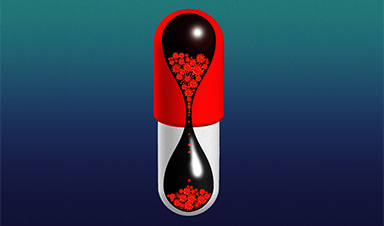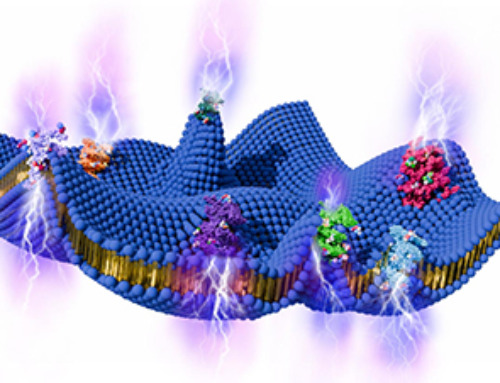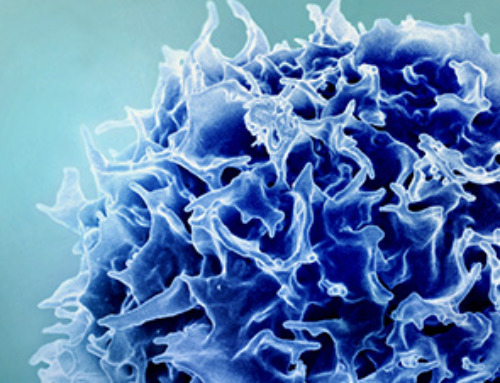From a new article in the New York Times:
New antiviral drugs are startlingly effective against the coronavirus—if they're taken in time.
n March, 2020, researchers at Emory University published a paper about a molecule called NHC/EIDD-2801. At the time, there were no treatments available for the coronavirus. But NHC/EIDD-2801, the researchers wrote, possessed "potency against multiple coronaviruses," and could become "an effective antiviral against SARS-CoV-2." A few days later, Emory licensed the molecule to Ridgeback Biotherapeutics, a Miami-based biotechnology company which had previously developed a monoclonal antibody for Ebola. Ridgeback partnered with the pharmaceutical giant Merck to accelerate its development.
The Emory researchers named their drug molnupiravir, after Mjölnir—the hammer of Thor. It turns out that this was not hyperbole. Last month, Merck and Ridgeback announced that molnupiravir could reduce by half the chances that a person infected by the coronavirus would need to be hospitalized. The drug was so overwhelmingly effective that an independent committee asked the researchers to stop their Phase III trial early—it would have been unethical to continue giving participants placebos. None of the nearly four hundred patients who received molnupiravir in the trial went on to die, and the drug had no major side effects. On November 4th, the U.K. became the first country to approve molnupiravir; many observers expect that an emergency-use authorization will come from the U.S. Food and Drug Administration in December.
Oral antivirals like molnupiravir could transform the treatment of covid-19, and of the pandemic more generally. Currently, treatments aimed at fighting covid—mainly monoclonal antibodies and antiviral drugs like remdesivir—are given through infusion or injection, usually in clinics or hospitals. By the time people manage to arrange a visit, they are often too sick to receive much benefit. Molnupiravir, however, is a little orange pill. A person might wake up, feel unwell, get a rapid covid test, and head to the pharmacy around the corner to pick up a pack. A full course, which needs to start within five days of the appearance of symptoms, consists of forty pills—four capsules taken twice a day, for five days. Merck is now testing whether molnupiravir can prevent not just hospitalization after infection but also infection after exposure. If that's the case, then the drug might be taken prophylactically—you could get a prescription when someone in your household tests positive, even if you haven't.
Molnupiravir is—and is likely to remain—effective against all the major coronavirus variants. In fact, at least in the lab, it works against any number of RNA viruses besides sars-CoV-2, including Ebola, hepatitis C, R.S.V., and norovirus. Instead of targeting the coronavirus's spike protein, as vaccine-generated antibodies do, molnupiravir attacks the virus's basic replication machinery. The spike protein mutates over time, but the replication machinery is mostly set in stone, and compromising that would make it hard for the virus to evolve resistance. Once it's inside the body, molnupiravir breaks down into a molecule called NHC. As my colleague Matthew Hutson explained, in a piece about antiviral drugs published last year, NHC is similar to cytosine, one of the four "bases" from which viral RNA is constructed; when the coronavirus's RNA begins to copy itself, it slips into cytosine's spot, in a kind of "Freaky Friday" swap. The molecule evades the virus's genetic proofreading mechanisms and wreaks havoc, pairing with other bases, introducing a bevy of errors, and ultimately crashing the system.
With winter approaching, America is entering another precarious moment in the pandemic. Coronavirus cases have spiked in many European countries—including some with higher vaccination rates than the U.S.—and some American hospitals are already starting to buckle under the weight of a new wave. Nearly fifty thousand Americans are currently hospitalized with covid-19. It seems like molnupiravir is arriving just when we need it.
It isn't the only antiviral covid pill, either. A day after the U.K. authorized Merck's drug, Pfizer announced that its antiviral, Paxlovid, was also staggeringly effective at preventing the progression of covid-19 in high-risk patients. The drug, when taken within three days of the onset of symptoms, reduced the risk of hospitalization by nearly ninety per cent. Only three of the nearly four hundred people who took Paxlovid were hospitalized, and no one died; in the placebo group, there were twenty-seven hospitalizations and seven deaths. Paxlovid is administered along with another antiviral medication called ritonavir, which slows the rate at which the former drug is broken down by the body. Like Merck, Pfizer is now examining whether Paxlovid can also be used to prevent infections after an exposure. Results are expected early in 2022. (It's not yet known how much of a difference the drugs will make for vaccinated individuals suffering from breakthrough infections; Merck's and Pfizer's trials included only unvaccinated people with risk factors for severe disease, such as obesity, diabetes, or older age. Vaccinated individuals are already much less likely to be hospitalized or die of covid-19.)
News
The Brain’s Strange Way of Computing Could Explain Consciousness
Consciousness may emerge not from code, but from the way living brains physically compute. Discussions about consciousness often stall between two deeply rooted viewpoints. One is computational functionalism, which holds that cognition can be [...]
First breathing ‘lung-on-chip’ developed using genetically identical cells
Researchers at the Francis Crick Institute and AlveoliX have developed the first human lung-on-chip model using stem cells taken from only one person. These chips simulate breathing motions and lung disease in an individual, [...]
Cell Membranes May Act Like Tiny Power Generators
Living cells may generate electricity through the natural motion of their membranes. These fast electrical signals could play a role in how cells communicate and sense their surroundings. Scientists have proposed a new theoretical [...]
This Viral RNA Structure Could Lead to a Universal Antiviral Drug
Researchers identify a shared RNA-protein interaction that could lead to broad-spectrum antiviral treatments for enteroviruses. A new study from the University of Maryland, Baltimore County (UMBC), published in Nature Communications, explains how enteroviruses begin reproducing [...]
New study suggests a way to rejuvenate the immune system
Stimulating the liver to produce some of the signals of the thymus can reverse age-related declines in T-cell populations and enhance response to vaccination. As people age, their immune system function declines. T cell [...]
Nerve Damage Can Disrupt Immunity Across the Entire Body
A single nerve injury can quietly reshape the immune system across the entire body. Preclinical research from McGill University suggests that nerve injuries may lead to long-lasting changes in the immune system, and these [...]
Fake Science Is Growing Faster Than Legitimate Research, New Study Warns
New research reveals organized networks linking paper mills, intermediaries, and compromised academic journals Organized scientific fraud is becoming increasingly common, ranging from fabricated research to the buying and selling of authorship and citations, according [...]
Scientists Unlock a New Way to Hear the Brain’s Hidden Language
Scientists can finally hear the brain’s quietest messages—unlocking the hidden code behind how neurons think, decide, and remember. Scientists have created a new protein that can capture the incoming chemical signals received by brain [...]
Does being infected or vaccinated first influence COVID-19 immunity?
A new study analyzing the immune response to COVID-19 in a Catalan cohort of health workers sheds light on an important question: does it matter whether a person was first infected or first vaccinated? [...]
We May Never Know if AI Is Conscious, Says Cambridge Philosopher
As claims about conscious AI grow louder, a Cambridge philosopher argues that we lack the evidence to know whether machines can truly be conscious, let alone morally significant. A philosopher at the University of [...]
AI Helped Scientists Stop a Virus With One Tiny Change
Using AI, researchers identified one tiny molecular interaction that viruses need to infect cells. Disrupting it stopped the virus before infection could begin. Washington State University scientists have uncovered a method to interfere with a key [...]
Deadly Hospital Fungus May Finally Have a Weakness
A deadly, drug-resistant hospital fungus may finally have a weakness—and scientists think they’ve found it. Researchers have identified a genetic process that could open the door to new treatments for a dangerous fungal infection [...]
Fever-Proof Bird Flu Variant Could Fuel the Next Pandemic
Bird flu viruses present a significant risk to humans because they can continue replicating at temperatures higher than a typical fever. Fever is one of the body’s main tools for slowing or stopping viral [...]
What could the future of nanoscience look like?
Society has a lot to thank for nanoscience. From improved health monitoring to reducing the size of electronics, scientists’ ability to delve deeper and better understand chemistry at the nanoscale has opened up numerous [...]
Scientists Melt Cancer’s Hidden “Power Hubs” and Stop Tumor Growth
Researchers discovered that in a rare kidney cancer, RNA builds droplet-like hubs that act as growth control centers inside tumor cells. By engineering a molecular switch to dissolve these hubs, they were able to halt cancer [...]
Platelet-inspired nanoparticles could improve treatment of inflammatory diseases
Scientists have developed platelet-inspired nanoparticles that deliver anti-inflammatory drugs directly to brain-computer interface implants, doubling their effectiveness. Scientists have found a way to improve the performance of brain-computer interface (BCI) electrodes by delivering anti-inflammatory drugs directly [...]





















